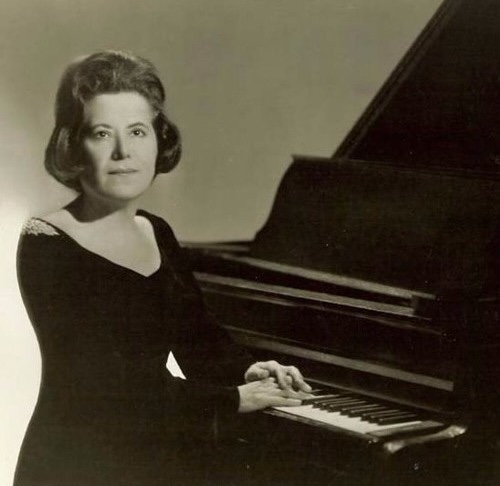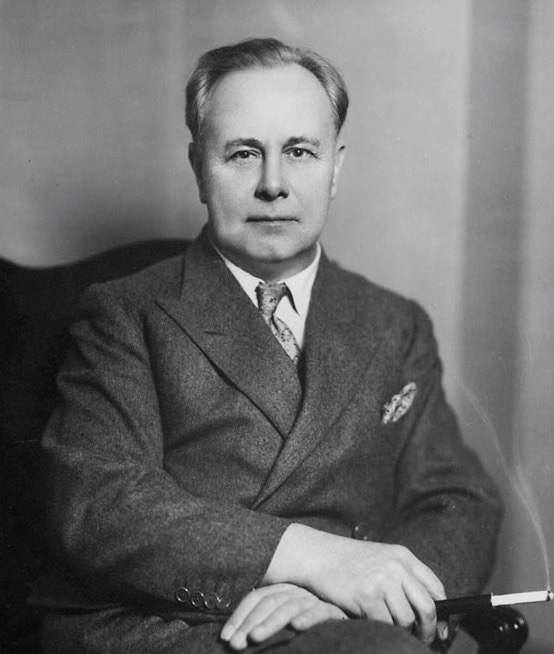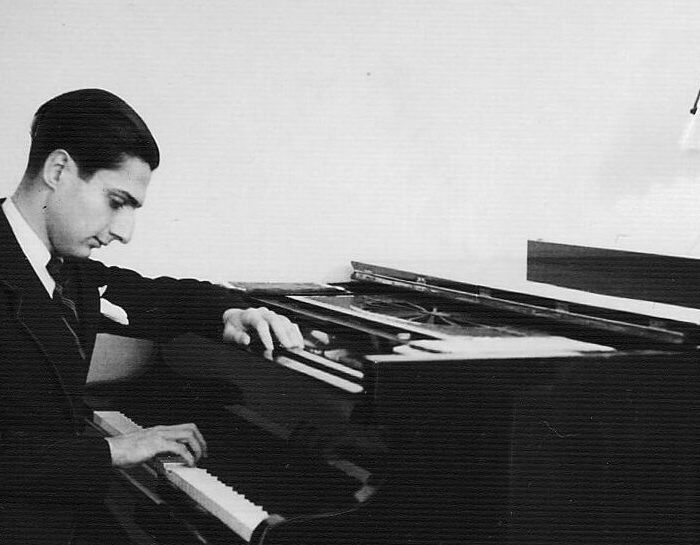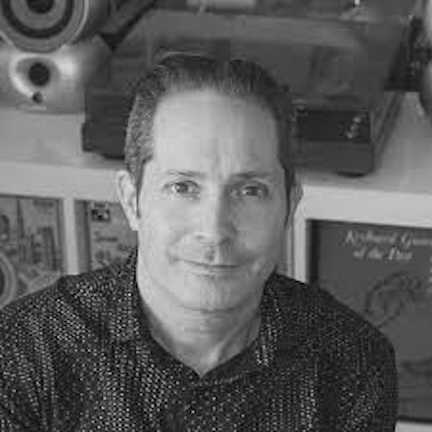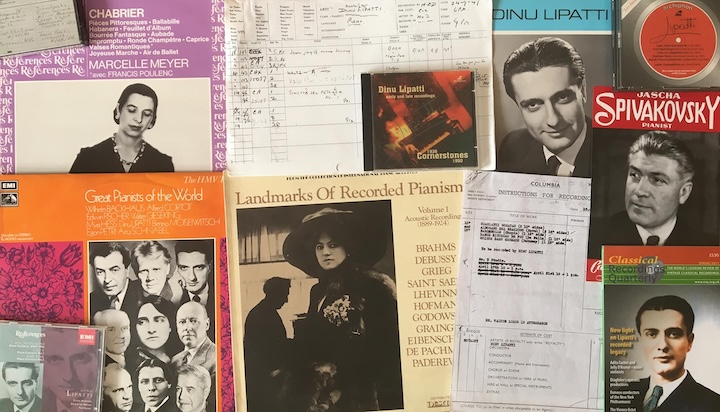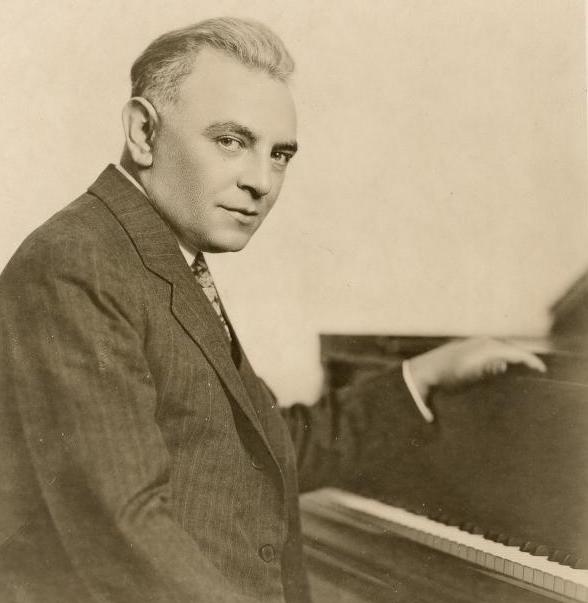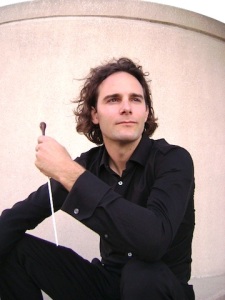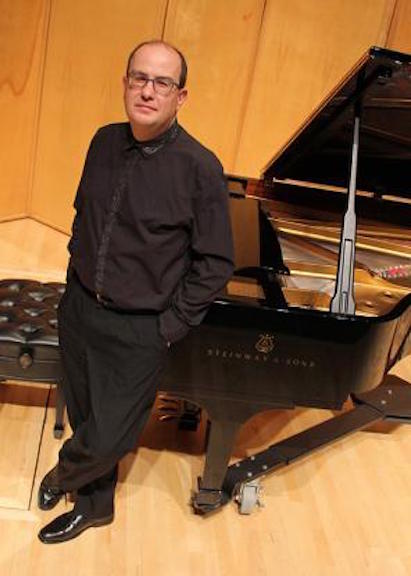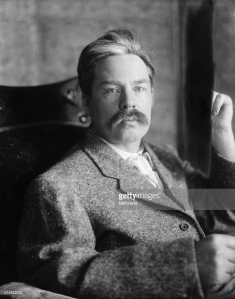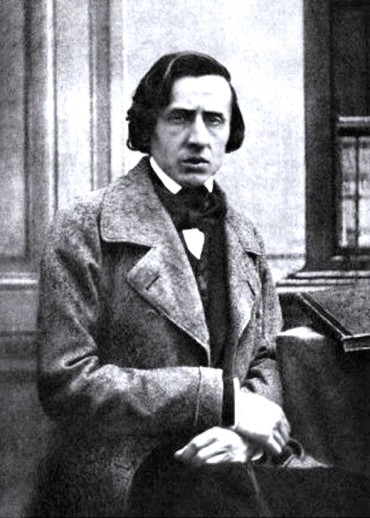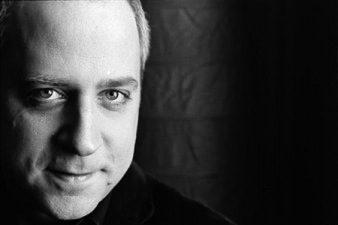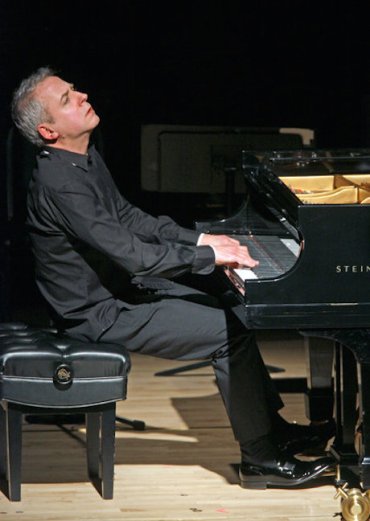The Well-Tempered Ear
Revisit historical and forgotten pianists with Mark Ainley’s ‘Piano Files’
2 Comments
PLEASE HELP THE EAR. IF YOU LIKE A CERTAIN BLOG POST, SPREAD THE WORD. FORWARD A LINK TO IT OR, SHARE IT or TAG IT (not just “Like” it) ON FACEBOOK. Performers can use the extra exposure to draw potential audience members to an event. And you might even attract new readers and subscribers to the blog.
By Jacob Stockinger
Who were Jascha Spivakosky, Gitta Gradova, Wilhelm Backhaus, Marcelle Meyer, Benno Moisiewitsch, Guitar Novaes (below), Eugen Indjic and Solomon — pianists from Russia/Ukraine, the United States, Germany, France, England, Brazil, Serbia/US and England, respectively?
Who was the Polish-American Josef Hofmann (below) and why did Sergei Rachmaninoff and others consider him the greatest pianist of his day while others considered him — and still do — dangerously radical?
Why was the early death of Dino Lipatti (below) such a major loss for classical music?
Most of all: How did these performers play the piano? What made them special? And what did they sound like?
Just ask Mark Ainley (below).
Ainley’s online Piano Files goes back to the earliest days of recordings and resurrects forgotten virtuosi on Facebook and the web.
His frequently posts entries — often on birthdays or anniversaries of deaths and certain concerts — offers concise, well researched and well-written summaries of their lives and careers.
And he finds the best surviving or available recordings by those pianists — usually on YouTube or reissued CDs and LOPs (below) — and links to them so you can hear differences and decide for yourself.
For example, The Ear found the 1930 recording of Chopin mazurkas that Polish pianist Ignaz Friedman (below) recorded (on YouTube at the bottom) quite revealing about historical stylistic and rhythmic differences — freer rubato and hands not always played together — compared to more mainstream interpretations by, say, Arthur Rubinstein or Vladimir Horowitz or Martha Argerich.
You can also learn much about the Big Names, including pianists who studied with students Chopin and Liszt. Ainley celebrates well-known piano virtuosi like Rubinstein, Horowitz, Gina Bachauer, Claudio Arrau, Jorge Bolet and Dame Myra Hess as well.
Ainley’s Piano Files save you a lot of time and searching on your own, and are available for you to subscribe to for downloads and sharing on Facebook:
https://www.facebook.com/ThePianoFilesWithMarkAinley
You can also go to his online website — which I prefer — and bookmark it if you like. There is a lot to explore, to read and listen to. The archives of past entries go back to March of 2011:
https://www.thepianofiles.com/author/Mark
And here is email if you have or a tip or suggestion for Ainley, or a reaction to his site and his written and recorded postings:
What do you think of the Piano Files?
Do you learn anything from them?
Will you use them and enjoy them?
The Ear wants to hear.
Tags: #FacebookPost, #FacebookPosting, 2011, America, American, anniversary, Apple, archives, Arrau, Arthur Rubinstein, Arts, Asia, asian, Bach, Beethoven, Benno Moisiewitsch, big, big names, Bing, birthday, blog, bookmark, Brazil, Carl Mikuli, Chamber music, Chopin, Classical music, classical pianist, classical piano, Claudio Arrau, composer, Concert, concerto, concise, dance, dangerous, death, Dinu Lipatti, download, Early music, effort, England, enjoy, Eugen Indjic, Euorpe, European, explore, Facebook, forget, forgotten, France, Frédéric Chopin, French, Germany, Gina Bachauer, Gitta Gradova, Google, Google Alert, Google Search, Great Britain, Greece, Greek, hands, historical, how, interpret, interpretation, Jacob Stockinger, Jascha Spivakosky, Johann Sebastian Bach, Jorge Bolet, Josef Hofmann, learn, listen, Liszt, loss, Ludwig van Beethoven, Marcelle Meyer, Mark Ainley, Martha Argerich, mazurka, Microsoft, Microsoft Bing, Mikuli, Mozart, Music, Myra Hess, names, neglect, neglected, North America, North American, ok, online, Orchestra, OS, Pianist, pianists, Piano, Piano Files with Mark Ainley, Poland, Polish, Rachmaninoff, Rachmaninov, radical, recording, reserach, rhythm, rubato, Russia, Russian, search, Serb, Serbia, share, Solomon, Sonata, South America, South American, Student, students, subscribe, surviving, Swiss, Switzerland, tag, The Ear, The Well-Tempered Ear, time, U.S., UK, Ukraine, Ukrainean, Ukrainian, United States, University of Wisconsin-Madison School of Music, University of Wisconsin–Madison, use, vintage, virtuoso, Vladimir Horowitz, Website, what, when, why, Wilhelm Backhaus, Wisconsin, Wolfgang Amadeus Mozart, writing, you, YouTube
How do you rank Beethoven’s five piano concertos? Which is your favorite set of recordings?
16 Comments
PLEASE HELP THE EAR. IF YOU LIKE A CERTAIN BLOG POST, SPREAD THE WORD. FORWARD A LINK TO IT OR, SHARE IT or TAG IT (not just “Like” it) ON FACEBOOK. Performers can use the extra exposure to draw potential audience members to an event. And you might even attract new readers and subscribers to the blog.
By Jacob Stockinger
Lately, The Ear has been listening to the five piano concertos by Ludwig van Beethoven (below).
That, of course, is not counting the composer’s rarely performed piano transcription of his own violin concerto.
The five concertos are so different but so consistently great that they are always in demand for programming and always a pleasure to listen to as well, I imagine, to play.
Lately I have been sampling two new complete recordings that have received high praise from critics: one (below top) by the Chinese pianist Haochen Zhang, who won the Van Cliburn competition in 2009 and recorded his set, including a cadenza by him, with the Philadelphia Orchestra under conductor Nathalie Stutzmann; and the other, a complete live set (below bottom) by the American pianist Garrick Ohlsson, the winner of the 1970 Chopin competition, recently recorded at the Grand Teton Festival.
Both are fine recordings and well worth listening to.
They made me once again recalculate my personal ranking of the five piano concertos. I don’t mean a ranking by quality or which one is the best, but simply which individual concertos I prefer to listen to by frequency. Here is any order: 4, 3, 5 (Emperor), 1, and 2.
How would you rank these five masterworks?
There are so many excellent recordings of these glorious works. I have listened to individual concertos and complete sets by Claudio Arrau, Emanuel Ax, Alfred Brendel (who has recorded them three times), Maurizio Pollini, Mitsuko Uchida, Daniel Barenboim, Murray Perahia, Leif Ove Andnes, Glenn Gould, Arthur Rubinstein (who recorded them twice), Rudolf Serkin, Vladimir Ashkenazy, Jan Lisiecki, Rudolf Buchbinder, Krystian Zimerman, Yefim Bronfman; and on and on. It is hard to pick just one favorite and the idea of a “definitive” performance is impossible.
And truth be told, I generally turn to different performers for different concertos. Martha Argerich has not recorded all five but I love her performances of Piano Concertos 1, 2 and 3. I admire the late Nelson Freire in the Piano Concerto No. 5 (“Emperor”). And I am very moved by Krystian Zimerman’s playing of the inspired and unconventional middle movement of the Piano Concerto No. 4 in the YouTube video at the bottom.
But overall the most consistent sets I continue to like are classics by the late Leon Fleisher and Richard Goode, who completely understands and captures what is special about Beethoven, as he demonstrated in his pioneering complete set of Beethoven’s 32 piano sonatas.
How would you personally rank the Beethoven pianos concertos as your favorites by appeal and listenability?
Which pianist in Beethoven’s five piano concertos do you listen to and like the most often?
Is there a complete set you find irresistible and recommend to others? Or a particular recording of a particular concerto?
The Ear wants to hear.
Tags: #BlogPost, #BlogPosting, #FacebookPost, #FacebookPosting, #YouTubevideo, Alfred Brendel, America, American, appeal, Arthur Rubinstein, Arts, Asia, asian, audience, Beethoven, blog, China, Chinese, classic, Classical music, Claudio Arrau, complete, composer, Concert, concerto, conductor, critic, critical, critical acclaim, Daniel Barenboim, definitive, demand, different, Early music, Emanuel Ax, Emperor, Emperor Concerto, Europe, European, Facebook, festival, Garrick Ohlsson, Glenn Gould, Grand Teton Music Festival, Haochen Zhang, impossible, Jacob Stockinger, Jan Lisiecki, Krystian Zimerman, Leif Ove Andnes, Leon Fleisher, link, list, listenability, Ludwig van Beethoven, Martha Argerich, Maurizio Pollini, Mitsuko Uchida, Murray Perahia, Music, Nathalie Stutzmann, Nelson Freire, Orchestra, particular, personal, Philadelphia Orchestra, Pianist, Piano, Piano concerto, pioneer, play, pleasure, popular, popularity, praise, quality, rank, rating, recording, Richard Goode, Rudolf Serkin, Rudolph Buchbinder, sample, set, share, Sonata, symphony, tag, The Ear, transcription, U.S., Van Cliburn, Van Cliburn International Piano Competition, Violin, Violin concerto, Vladimir Ashkenazy, winner, Yefim Bronfman, YouTube
Nobody expressed romantic love in music better or more often than Robert Schumann
7 Comments
PLEASE HELP THE EAR. IF YOU LIKE A CERTAIN BLOG POST, SPREAD THE WORD. FORWARD A LINK TO IT OR, SHARE IT or TAG IT (not just “Like” it) ON FACEBOOK. Performers can use the extra exposure to draw potential audience members to an event. And you might even attract new readers and subscribers to the blog.
By Jacob Stockinger
Today — Feb. 14, 2023 — is Valentine’s Day.
When it comes to composing music that expresses romantic love, The Ear thinks nobody did it more consistently or better than Robert Schumann.
Inspired by his wife Clara, a former student who defied her father to marry Robert, Schumann (seen below with Clara) put romantic love at the heart of so many pieces.
One of his finest is the second movement of the eight-movement piano suite “Kreisleriana,” Op. 16. Perhaps you will agree after listening to it played by Martha Argerich in the YouTube video below.
Check it out.
Does it move you?
If you have a different choice for a composer or a piece suitable for the occasion today, please include it, perhaps with a YouTube link, as a comment.
Happy Valentine’s Day
The Ear wants to hear.
Tags: #BlogPost, #BlogPosting, #ClaraSchumann, #FacebookPost, #FacebookPosting, #MarthaArgerich, #RobertSchumann, #TheEar, #YouTubevideo, Arts, blog, Clara Schumann, Classical music, composer, cupid, express, Facebook, Jacob Stockinger, Kreisleriana, link, Love, Martha Argerich, Music, occasion, Piano, piece, Robert Schumann, Romantic, Schumann, share, Suite, tag, The Ear, Valentine's Day, YouTube
Classical music: This Wednesday night, four teenage soloists compete in this year’s Final Forte competition with the Madison Symphony Orchestra. Attend it live for FREE, or watch and hear it live on PBS Wisconsin and Wisconsin Public Radio
1 Comment
PLEASE HELP THE EAR. IF YOU LIKE A CERTAIN BLOG POST, SPREAD THE WORD. FORWARD A LINK TO IT OR, SHARE IT or TAG IT (not just “Like” it) ON FACEBOOK. Performers can use the extra exposure to draw potential audience members to an event. And you might even attract new readers and subscribers to the blog.
By Jacob Stockinger
This Wednesday night, Feb. 26, at 7 p.m. in Overture Hall, the Madison Symphony Orchestra (below in a photo by Peter Rodgers), PBS Wisconsin and Wisconsin Public Radio will present the 14th annual “Wisconsin Young Artists Compete: The Final Forte.”
The concert of four teenage concerto competition winners features the Madison Symphony Orchestra (MSO) led by Associate Conductor Kyle Knox (below).
The concert is FREE and open to the public. But audience members must register in advance, and arrive by 6:45 p.m. on Wednesday, Feb. 26, prior to the beginning of the live broadcast. Reservations are required. Call (608) 257-3734 or go online to register at https://madisonsymphony.org/finalforte
Doors open at 6:15 p.m. and close at 6:45 p.m. due to the live broadcast. The event runs until 8:30 p.m. No tickets will be issued at the door. Seating is general admission in select areas of the concert hall.
The four finalists (below, in a photo by James Gill who did all the contestant photos) were chosen from 10 semi-finalists in November.
They are:
Jessica Jiang (far left), who will perform the first movement from Prokofiev’s Piano Concerto No. 3. (You can hear the Prokofiev movement, played by Martha Argerich, in the YouTube video at the bottom.)
Jonah Kartman (far right), who will perform the first movement from Saint-Saens’ Violin Concerto No 3.
Emily Hauer (third from left) who will perform the first movement from Sibelius’ Violin Concerto in D minor.
Pianist Michael Wu (second from left) who will perform Liszt’s “Totentanz” (Dance of Death).
Videos to introduce each finalist are now available for viewing online.
Jessica Jiang: https://pbswisconsin.org/wpt-video/wpt-music-arts/final-forte-jessica-jiang-qto5ir/
Emily Hauer: https://pbswisconsin.org/wpt-video/wpt-music-arts/final-forte-emily-hauer-8ihe8s/
Jonah Kartman: https://pbswisconsin.org/wpt-video/wpt-music-arts/final-forte-jonah-kartman-xsr1z6/
Michael Wu): https://pbswisconsin.org/wpt-video/wpt-music-arts/final-forte-michael-wu-frbf66/
Rebroadcast dates on the Wisconsin Channel (WPT-2) will be Friday, March 6 at 8 p.m. and 11p.m.; Saturday, March 7, at 3 p.m.; and Thursday, March 12, at 3 a.m.
ABOUT THE FINALISTS
Jessica Jiang (below) is a junior at Madison Memorial High School. She took up the piano at the age of four and currently studies with Bill Lutes, Emeritus Professor at the UW-Madison Mead Witter School of Music. Jessica received the Steenbock Youth Music Award in the 2018 Bolz Young Artist Competition and took second place in Division III of the National Steinway and Sons Piano Competition in 2019.
Emily Hauer (below) is a home-schooled senior from Appleton. She began violin lessons at the age of two and currently studies with Ilana Setapen, associate concertmaster of the Milwaukee Symphony Orchestra. Emily won the Wisconsin Chamber Orchestra Young Artist Concerto Competition in 2017 and is currently in her fourth year as the concertmaster of the Fox Valley Youth Symphony Orchestra.
Jonah Kartman (below) is a home-schooled senior from Glendale. He has been playing the violin for 13 years, and currently studies with I-Hao Lee at DePaul University’s School of Music. Jonah was a finalist in the 2019 Milwaukee Symphony Orchestra’s Audrey G. Baird Stars of Tomorrow competition, and a two-time winner and scholarship recipient in the Civic Music Association of Milwaukee Competition.
Michael Wu (below) is a senior at Sun Prairie High School. He began piano lessons at age five, and currently studies with Bill Lutes, Emeritus Professor at the UW-Madison Mead Witter School of Music. Michael received the Steenbock Youth Music Award in the 2017 Bolz Young Artist Competition and took first place in Division III of the National Steinway and Sons Piano Competition in 2018.
ABOUT THE FINAL FORTE
This competition has captured an enormous following and numerous honors, including an Emmy nomination, First Place in the “Special Interest” category from the Wisconsin Broadcasters Association in 2007, and the fifth most-watched program in the February 2007 Nielsen ratings. The 2008 broadcasts reached more than 60,000 viewers and listeners in the Madison market alone and the 2009 broadcasts reached an estimated 200,000 statewide.
The Final Forte is funded by major support from Diane Ballweg, Stephen Morton, W. Jerome Frautschi, A. Paul Jones Charitable Trust, Julie and Larry Midtbo, Fred and Mary Mohs, and Elizabeth Olson, with additional support from Bell Laboratories, James Dahlberg and Elsebet Lund, Kato Perlman, Cyrena and Lee Pondrom, Sentry Insurance Foundation, Darcy Kind and Marc Vitale, Dr. A. Beyer-Mears, Nick and Judith Topitzes, the Focus Fund for Young Performers, and Friends of PBS Wisconsin.
Tags: #AppletonWisconsin, #AssociateConductor, #BellLaboratories, #BillLutes, #BlogPost, #BlogPosting, #CamilleSaint-Saens, #CharitableTrust, #CivicMusicAssociation, #ConcertHall, #CyrenaPondrom, #DanceofDeath, #DePaulUniversity, #DianeBallweg, #EmilyHauer, #EmmyAward, #FacebookPost, #FacebookPosting, #FinalForte, #FinancialSupport, #FirstPlace, #FocusFund, #FoxValley, #FoxValleyYouthSymphonyOrchestra, #FranzLiszt, #FriendsofPBSWisconsin, #GeneralAdmission, #I-HaoLee, #IlanaSetapen, #JacobStockinger, #JamesGill, #JeanSibelius, #JessicaJiang, #JonahKartman, #KatoPerlman, #KyleKnox, #LiveBroadcast, #MadisonSymphonyOrchestra, #MarthaArgerich, #MeadWitterSchoolofMusic, #MemorialHighSchool, #MichaelWu, #MilwaukeeSymphonyOrchestra, #MusicLessons, #NielsenRatings, #OrchestralMusic, #OvertureCenter, #OvertureHall, #PBSWisconsin, #PianoCompetition, #PianoConcerto, #PianoLessons, #ProfessorEmeritus, #SchoolofMusic, #SecondPlace, #Semi-finals, #SentryInsurance, #SergeiProkofiev, #SpecialInterest, #StarsofTomorrow, #Steinway&Sons, #SteinwayandSons, #SteinwayPiano, #StephenMorton, #SunPrairie, #SunPrairieHighSchool, #SunPrairieWisconsin, #TheEar, #TVviewership, #UniversityofWisconsin-Madison, #ViolinConcerto, #ViolinLessons, #W.JeromeFrautschi, #WisconsinBroadcastersAssociation, #WisconsinChamberOrchestra, #WisconsinChannel, #WisconsinPublicRadio, #WisconsinPublicTelevision, #WisconsinYoungArtistsCompete, #YoungArtist, #YoungArtists, #YouTubevideo, advance, age, Appleton, area, Arts, associate, audience, award, Bell Laboratories, Bill Lutes, blog, Bloz, call, Camille Saint-Saëns, capture, category, Charitable Trust, charity, Civic Music Association, Classical music, close, competitiion, competitors, composer, Concert, concert hall, concertmaster, concerto, conductor, Cyrene Pondrom, dance, Dance of Death, dates, death, DePaul University, Diane Ballweg, division, donor, donors, doors, Emily Hauer, Emmy, Emmy award, Facebook, Final Forte, finalist, first, first place, Focus Fund, following, forward, Fox Valley, Fox Valley Youth Symphony Orchestra, Franz Liszt, free, friends, Friends of PBS Wisconsin, funded, funding, general admission, Glendale, hall, home-schooled, honors, I-Hai Lee, Ilana Setapen, introduction, Jacob Stockinger, James Gill, Jean Sibelius, Jessica Jiang, Jiang, Jonah Kartman, junior, Kato Perlman, Kyle Knox, Lee, lessons, like, link, listener, Liszt, live broadcast, Madison Symphony Orchestra, Martha Argerich, Mead Witter School of Music, members, Memorial High Schol, Michael Wu, Milwaukee, Milwaukee Symphony Orchestra, Mohs, movement, MSO, Music, nation, national, Nielsen, nomination, November, online, Orchestra, orchestral music, Overture Center, Overture Hall, PBS, PBS Wisconsin, performer, performers, Pianist, Piano, piano competition, Piano concerto, place, post, posting, professor emertius, program, Prokofiev, public, Radio, ratings, rebroadcast, register, reservation, Saturday, School of Music, seating, second, second place, select, senior, Sentry Insurance, Sergei Prokofiev, share, special interest, Stars of Tomorrow, statewide, Steenbacl, Steinway and Sons, Stephen Morton, Student, studies, study, Sun Prairie, Sun Prairie High School, support, symphony, tag, Teacher, Television, The Ear, Thursday, Thursday August 22, ticket, Totentanz, trust, TV, United States, University of Wisconsin-Madison School of Music, University of Wisconsin–Madison, UW-Madison, video, view, viewer, viewing, Violin, Violin concerto, violinist, W. Jerome Frautschi, watched, WCO, Wednesday, winner, Wisconsin, Wisconsin Broadcasters Association, Wisconsin Chamber Orchestra, Wisconsin Channel, wisconsin public radio, Wisconsin Public Television, Wisconsin Young Artists Compete, WPT, Wu, young, young artist, Youth, YouTube
Classical music: Super-virtuoso pianist Marc-André Hamelin makes his Madison debut with the Madison Symphony Orchestra this weekend in concertos by Richard Strauss and Maurice Ravel
6 Comments
IF YOU LIKE A CERTAIN BLOG POST, PLEASE SPREAD THE WORD. FORWARD A LINK TO IT OR, SHARE or TAG IT (not just “Like” it) ON FACEBOOK. Performers can use the extra exposure to draw potential audience members to an event.
By Jacob Stockinger
As a pianist, he is known as someone who can play more notes faster and more clearly than anyone one – in short, a “super-virtuoso.”
He is the Canadian pianist Marc-André Hamelin (below), who will make his Madison debut this weekend with the Madison Symphony Orchestra when he performs two concertos: “Burlesque” by Richard Strauss and the Piano Concerto in G Major by Maurice Ravel.
The program opens with Wolfgang Amadeus Mozart’s Symphony No. 38, “Prague,” and closes with Claude Debussy’s La Mer (The Sea).
Performances take place in Overture Hall, 201 State St., on Friday, April 12, at 7:30 p.m.; Saturday, April 13, at 8 p.m.; and Sunday, April 14, at 2:30 p.m.
An Open Rehearsal will be held on Thursday, April 11 — free and open to the public. Limited space is available (RSVP required by calling 608 257-3734). Patrons must arrive by 6:45 p.m. For more information about the concerts and rehearsal, go to: https://madisonsymphony.org/event/an-auspicious-debut-marc-andre-hamelin/
Maestro John DeMain (below, in a photo by Greg Anderson), who will conduct the concerts, says: “Marc-André Hamelin is one of the major pianists of our time. This program features two of the greatest German composers and two great French Impressionists. Always inspired by Mozart, I am delighted to open with his Prague symphony.
“Then comes Strauss’ Burlesque with Marc-André performing virtuosic and delightful musical fare. After intermission comes another favorite of mine, Ravel’s Piano Concerto with its sultry, cabaret-like slow movement that climaxes with a raucous but fun last movement. (In the YouTube video at the bottom, you can hear Martha Argerich play that second movement with conductor Claudio Abbado and the Berlin Philharmonic.)
“The concert closes with Claude Debussy’s La Mer, his amazing tone poem that conjures up images of the sea both raging and calm, placing ultimate demands on the orchestra and creating an aural thrill for the audience.”
ABOUT MARC-ANDRÉ HAMELIN
The Oregonian summarizes the featured soloist concisely: “Is there anything Marc-André Hamelin can’t do at the piano?” Pianist Marc-André Hamelin is known worldwide for his unrivaled blend of consummate musicianship and brilliant technique, as well as for his exploration of the rarities of the 19th, 20th, and 21st centuries — in concert and on disc.
Although primarily a performer, Hamelin has composed music throughout his career. He was a distinguished jury member of the 15th Van Cliburn Competition in 2017, where each of the 30 competitors in the Preliminary Round were required to perform Hamelin’s “L’Homme armé.” It marked the first time the composer of the commissioned work was also a member of the jury.
A prolific maker of recordings, Hamelin (below) was honored with the 2014 ECHO Klassik Instrumentalist of Year (Piano) and Disc of the Year for his three-disc set of “Busoni: Late Piano Music.” An album of his own compositions, “Hamelin: Études,” received a 2010 Grammy nomination and a first prize from the German Record Critics’ Association. Hamelin is the recipient of a lifetime achievement award from the German Record Critics’ Association.
CONCERT AND TICKET DETAILS
The lobby opens 90 minutes prior to each concert. One hour before each performance, Michael Allsen will lead a 30-minute Prelude Discussion in Overture Hall to enhance concertgoers’ understanding and listening experience. It is free to ticket-holders.
The MSO recommends that concert attendees arrive early for each performance to make sure they have time to pass through Overture Center’s security stations, and so they can experience the Prelude Discussion.
Program notes for the concerts are available online: http://bit.ly/april2019programnotes
- Single Tickets are $18-$93 each and are on sale now at: https://madisonsymphony.org/hamelin through the Overture Center Box Office at 201 State Street, or by calling the Box Office at (608) 258-4141. Fees apply to online/phone sales.
- Groups of 10 or more can save 25% by calling the MSO office at (608) 257-3734. For more information, visit, https://www.madisonsymphony.org/groups.
- Student rush tickets can be purchased in person on the day of the concert at the Overture Center Box Office at 201 State Street. Students must show a valid student ID and can receive up to two $15 or $20 tickets. More information is at: https://www.madisonsymphony.org/studentrush
- Seniors age 62 and up receive 20% savings on advance and day-of-concert ticket purchases in select areas of the hall.
- Flex-ticket booklets of 10 vouchers for 2018-19 symphony subscription concerts are available. Learn more at: https://madisonsymphony.org/flex
- Out at the Symphony tickets include a seat in the Circle level of Overture Hall (regular price ($70-93), plus the after-party, for $45. Reception-only tickets are available for $25 each. Learn more at: https://madisonsymphony.org/out
Discounted seats are subject to availability, and discounts may not be combined.
Major funding for these concerts was provided by Madison Gas & Electric Foundation, Inc., Fred and Mary Mohs, Skofronick Family Charitable Trust and WPS Health Insurance. Additional funding was provided by Forte, James and Joan Johnston, Gary and Lynn Mecklenburg, Rodney Schreiner and Mark Blank, Stafford Rosenbaum LLP, and the Wisconsin Arts Board with funds from the State of Wisconsin and the National Endowment for the Arts.
Tags: #BerlinPhilharmonic, #BlogPost, #BlogPosting, #BoxOffice, #ClaudeDebussy, #ClaudioAbbado, #CommissionedMusic, #ECHOAward, #FacebookPost, #FacebookPosting, #FerruccioBusoni, #FirstPrize, #GermanRecordCritics'Association, #GrammyAward, #HealthInsurance, #JohnDeMain, #LaMer, #MadisonGasandElectric, #MadisonSymphonyOrchestra, #Marc-AndréHamelin, #MarthaArgerich, #MauriceRavel, #MeadWitterSchoolofMusic, #MG&E, #NationalEndowmentfortheArts, #NewMusic, #OpenRehearsal, #OvertureCenter, #OvertureHall, #PianoConcerto, #ProgramNotes, #RichardStrauss, #SeniorCitizen, #SlowMovement, #StaffordRosenbaum, #StateOfWisconsin, #SubscriptionConcert, #TheImpressionists, #TonePoem, #UniversityofWisconsin-Madison, #VanCliburn, #VanCliburnInternationalPianoCompetition, #WisconsinArtsBoard, #WolfgangAmadeusMozart, #World-wide, #YouTubevideo, achievement, Album, Arts, audience, aural, award, Berlin Philharmonic, blog, box office, briliant, Burlesque, Busoni, cabaret, calm, Canada, Canadian, charity, Classical music, Claude Debussy, Claudio Abbado, climax, commissioned, Compact Disc, competitor, composer, Composition, Concert, concerto, conductor, consummate, Debussy, debut, demand, disc, discount, discussion, Echo award, etude, experience, Facebook, fare, Ferruccio Busoni, first prize, forward, free, French, fun, funds, German Record Critics' Association, Grammy, health insurance, ID, Impressionist, information, Jacob Stockinger, John DeMain, judge, jury, La Mer, last, last movement, law firm, lawyer, lifetime, like, link, listening, live, Madison, Madison Gas and Electric, Madison Symphony Orchestra, Maestro, major, Marc-André Hamelin, Martha Argerich, Maurice Ravel, Mead Witter School of Music, movement, Mozart, Music, musicianship, National Endowment for the Arts, NEA, New Music, nomination, online, open, open rehearsal, Orchestra, Overture Center, Overture Hall, patron, performer, Pianist, Piano, poem, Prague, Prelude, program notes, rage, raging, raucous, Ravel, recording, rehearsal, Richard Strauss, RSVP, sea, seat, security, senior, senior citizen, share, Slow movement, soloist, spread, Stafford Rosenbaum, State of Wisconsin, Strauss, Student, subscription, sultry, super, symphony, tag, technique, thrill, time, tone, trust, United States, University of Wisconsin, University of Wisconsin-Madison School of Music, University of Wisconsin–Madison, UW-Madison, Van Cliburn, Van Cliburn International Piano Competition, virtuosic, virtuoso, weekend, Wisconsin Arts Board, Wolfgang Amadeus Mozart, word, worldwide, WPS, YouTube
Classical music: Brazilian pianist Alexandre Dossin makes his Madison debut Friday night with the Wisconsin Chamber Orchestra in an overlooked masterpiece of American Romanticism. Plus, the amateur Madison Community Symphony Orchestra performs a FREE all-Russian program on Friday night at MATC
1 Comment
ALERT 1: This week’s FREE Friday Noon Musicale at the First Unitarian Society of Madison, 900 University Bay Drive, features violinist Wendy Adams and pianist Ann Aschbacher in music by Schubert, Brahms and Hovhaness.
ALERT 2: The amateur Madison Community Symphony Orchestra will perform a FREE concert Friday night at 7:30 p.m. in the Norman Mitty Theater, 1701 Wright Street on the Madison Area Technical College campus on the east side. The all-Russian program, under the baton of Blake Walter of Edgewood College, features works by Glazunov, Prokofiev, Khachaturian and Balakirev. For more information and the complete program, go to: http://www.madisoncommunityorchestra.org/pages/concerts.htm
By Jacob Stockinger
The Wisconsin Chamber Orchestra (below top), under music director Andrew Sewell (below bottom), always puts together memorable programs, often with new and exciting soloists plus neglected or little known repertoire.
That is once again the promise of the WCO concert this Friday night at 7:30 p.m. in the Capitol Theater of the Overture Center, 201 State St.
Tickets are $15-$80. See below.
First, the program offers the Madison debut of Alexandre Dossin (below), the 2003 winner of the Martha Argerich International Piano Competition.
Trained at the Tchaikovsky Conservatory in Moscow, Dossin seems a power player. Little wonder that he has recorded music by Liszt, Prokofiev, Kabalevsky and Leonard Bernstein for Naxos Records as well as by Rachmaninoff and Tchaikovsky for G. Schirmer Music. You can also hear and see a lot of his performances on YouTube.
Moreover, Dossin, who has taught at the UW-Eau Claire and the University of Louisiana and who now teaches at the University of Oregon, will be playing a relatively neglected masterpiece of American Romantic music: the Piano Concerto No. 2 in D minor, Op. 23, by Edward MacDowell (below).
MacDowell’s work is a dark, dramatic and virtuosic work that was once championed by Van Cliburn. (You can hear Cliburn with the third movement with the Chicago Symphony Orchestra under the late Walter Hendl in the YouTube video at the bottom.).
For most listeners, that will be the discovery of the evening.
Rounding out the program are two more widely known masterpieces: the Orchestral Suite No. 4 by Johann Sebastian Bach and the Symphony No. 3, the “Rhenish,” by Robert Schumann.
The Ear is especially pleased that the WCO is doing Bach.
Too often modern instrument groups defer to period-instrument ensembles for Bach – which means that audiences don’t hear as much Bach (below) as they should and as previous generations did, as the prize-winning composer John Harbison has often lamented in public.
Of course, it is safe to bet that the WCO will borrow some of the faster tempi and historically informed performance techniques from the early music movement. Still, The Ear says Bravo to the programming of Bach by a group that uses modern instruments. We can always use more Bach.
The symphony by Robert Schumann (below) will also have an unusual, if subtle, aspect to its performance.
It is usually played by larger symphony orchestras. But using a chamber orchestra creates a certain intimacy and lends a transparency that reveals structure and themes in an engaging way. Yannick Nézet-Séguin – the highly acclaimed music director of the Philadelphia Orchestra and music director-designate of the Metropolitan Opera — recently proved that with his outstanding recording of the four symphonies by Robert Schumann (below) with the Chamber Orchestra of Europe.
For more background and information about tickets, go to:
https://wisconsinchamberorchestra.org/performances/masterworks-iii-3/
For more information about Alexandre Dossin, go to his two websites:
http://www.dossin.net/alexandredossin/Welcome.html
https://music.uoregon.edu/people/faculty/adossin
Tags: #AlanHovhaness, #AlexanderGlazunov, #AlexandreDossin, #AndrewSewell, #AramKhachaturian, #BaroqueMusic, #CapitolTheater, #ChamberOrchestraofEurope, #ChicagoSymphonyOrchestra, #EdgewoodCollege, #EdwardMacDowell, #FirstUnitarianSocietyofMadison, #FranzLiszt, #HistoricallyInformedPerformancePractices, #InstrumentalMusic, #JohannSebastianBach, #JohnHarbison, #LeonardBernstein, #MadisonCommunitySymphonyOrchestra, #MarthaArgerich, #MetropolitanOpera, #MilyBalakirev, #NaxosRecords, #OvertureCenter, #PeriodInstruments, #PeterIlyichTchaikovsky, #PhiladelphiaOrchestra, #PianoConcerto, #PianoMusic, #RobertSchumann, #RussianMusic, #SergeiProkofiev, #SergeiRachmaninoff, #SergeiRachmaninov, #TheMet, #UnitarianSociety, #UniversityofLouisiana, #UniversityofOregon, #UniversityofWisconsin, #UniversityofWisconsin-Eau Claire, #VanCliburn, #WisconsinChamberOrchestra, #YannickNezet-Seguin, Alan Hovhaness, amateur, America, American, Arts, Bach, Balakirev, Baroque, Bernstein, Blake Walter, Brazil, Capitol Theater, Chamber Orchestra of Europe, Chicago, Classical music, Compact Disc, Competition, composer, concerto, dark, dramatic, Early music, earlymusic, easy music, Edgewood College, First Unitarian Society of Madison, Franz Schubert, G. Schirmer, hear, historically informed performance practices, Hovhaness, instrument, Jacob Stockinger, Johann Sebastian Bach, Johannes Brahms, John Harbison, Kabalevsky, Leonard Bernstein, Liszt, Madison, Martha Argerich, masterpiece, memorable, Met, Metropolitan Opera, modern, Moscow, Music, Music director, Naxos Records, Orchestra, Oregon, Overture Center, performance, period instruments, period-instrument, Peter Ilyich Tchaikovsky, Philadelphia Orchestra, Piano, program, Prokofiev, Rachmaninov, repertoire, Rhenish, Rhine River, Romantic, Romanticism, Schirmer, Schumann, see, soloist, symphony, Tchaikovsky, tempi, United States, University of Wisconsin-Madison School of Music, University of Wisconsin–Madison, Van Cliburn, Violin, web site, Website, winner, Wisconsin, Wisconsin Chamber Orchestra, Yannick Nézet-Séguin, YouTube
Classical music: Here are the classical music winners of the 2018 Grammy Awards.
2 Comments
By Jacob Stockinger
This posting is both a news story and a gift guide of sorts about recordings you might like to give or get.
It features the classical music nominations for and winners of the Grammy Awards, which were just announced this past Sunday night.
Read them and in the COMMENT section what you think of the recordings that you know and which ones you think deserved to win. (The Ear got about half right.)
You can also encouraged to comment on the Grammys in general.
NOTE: THE WINNERS HAVE AN ASTERISK AND A PHOTO, AND ARE BOLDFACED
HISTORICAL ALBUMS:
- “The Goldberg Variations — the Complete Unreleased Recording Sessions June 1955” — Robert Russ, compilation producer; Matthias Erb, Martin Kistner & Andreas K. Meyer, mastering engineers (Glenn Gould)
- *”Leonard Bernstein — the Composer” (below) — Robert Russ, compilation producer; Martin Kistner & Andreas K. Meyer, mastering engineers (Leonard Bernstein)
ENGINEERED ALBUM, CLASSICAL
- “Danielpour: Songs of Solitude & War Songs” — Gary Call, engineer (Thomas Hampson, Giancarlo Guerrero & Nashville Symphony)
- “Kleiberg: Mass for Modern Man” — Morten Lindberg, engineer (Eivind Gullberg Jensen, Trondheim Vokalensemble & Trondheim Symphony Orchestra)
- “Schoenberg, Adam: American Symphony; Finding Rothko; Picture Studies” — Keith O. Johnson & Sean Royce Martin, engineers (Michael Stern & Kansas City Symphony)
- *”Shostakovich: Symphony No. 5; Barber: Adagio” (below) — Mark Donahue, engineer (Manfred Honeck & Pittsburgh Symphony Orchestra)
- “Tyberg: Masses” — John Newton, engineer; Jesse Brayman, mastering engineer (Brian A. Schmidt, Christopher Jacobson & South Dakota Chorale)
PRODUCER OF THE YEAR, CLASSICAL
- Blanton Alspaugh
- Manfred Eicher
- *David Frost (below)
- Morten Lindberg
- Judith Sherman
ORCHESTRAL PERFORMANCE
- “Concertos for Orchestra” — Louis Langrée, conductor (Cincinnati Symphony Orchestra)
- “Copland: Symphony No. 3; Three Latin American Sketches” — Leonard Slatkin, conductor (Detroit Symphony Orchestra)
- “Debussy: Images; Jeux & La Plus Que Lente” — Michael Tilson Thomas, conductor (San Francisco Symphony)
- “Mahler: Symphony No. 5” — Osmo Vänskä, conductor (Minnesota Orchestra)
- *”Shostakovich (below): Symphony No. 5; Barber: Adagio” — Manfred Honeck, conductor (Pittsburgh Symphony Orchestra)
OPERA RECORDING
- “Berg: Lulu” — Lothar Koenigs, conductor; Daniel Brenna, Marlis Petersen & Johan Reuter; Jay David Saks, producer (The Metropolitan Opera Orchestra)
- *”Berg: Wozzeck” (below) — Hans Graf, conductor; Anne Schwanewilms & Roman Trekel; Hans Graf, producer (Houston Symphony; Chorus of Students and Alumni, Shepherd School of Music, Rice University & Houston Grand Opera Children’s Chorus)
- “Bizet: Les Pêcheurs de Perles” — Gianandrea Noseda, conductor; Diana Damrau, Mariusz Kwiecień, Matthew Polenzani & Nicolas Testé; Jay David Saks, producer (The Metropolitan Opera Orchestra; The Metropolitan Opera Chorus)
- “Handel: Ottone” — George Petrou, conductor; Max Emanuel Cencic & Lauren Snouffer; Jacob Händel, producer (Il Pomo D’Oro)
- “Rimsky-Korsakov: The Golden Cockerel” — Valery Gergiev, conductor; Vladimir Feliauer, Aida Garifullina & Kira Loginova; Ilya Petrov, producer (Mariinsky Orchestra; Mariinsky Chorus)
CHORAL PERFORMANCE
- *”Bryars: The Fifth Century” — Donald Nally, conductor (PRISM Quartet; The Crossing)
- “Handel: Messiah” — Andrew Davis, conductor; Noel Edison, chorus master (Elizabeth DeShong, John Relyea, Andrew Staples & Erin Wall; Toronto Symphony Orchestra; Toronto Mendelssohn Choir)
- “Mansurian: Requiem” — Alexander Liebreich, conductor; Florian Helgath, chorus master (Anja Petersen & Andrew Redmond; Münchener Kammerorchester; RIAS Kammerchor)
- “Music of the Spheres” — Nigel Short, conductor (Tenebrae)
- “Tyberg: Masses” — Brian A. Schmidt, conductor (Christopher Jacobson; South Dakota Chorale)
CHAMBER MUSIC/SMALL ENSEMBLE PERFORMANCE
- “Buxtehude: Trio Sonatas, Op. 1” — Arcangelo
- *”Death & the Maiden” — Patricia Kopatchinskaja & the Saint Paul Chamber Orchestra
- “Divine Theatre — Sacred Motets by Giaches De Wert” — Stile Antico
- “Franck, Kurtág, Previn & Schumann” — Joyce Yang & Augustin Hadelich
- “Martha Argerich & Friends — Live From Lugano 2016” — Martha Argerich & Various Artists
CLASSICAL INSTRUMENTAL SOLO
- “Bach: The French Suites” — Murray Perahia
- “Haydn: Cello Concertos” — Steven Isserlis; Florian Donderer, conductor (The Deutsch Kammerphilharmonie Bremen)
- “Levina: The Piano Concertos” — Maria Lettberg; Ariane Matiakh, conductor (Rundfunk-Sinfonieorchester Berlin)
- “Shostakovich: Violin Concertos Nos. 1 & 2” — Frank Peter Zimmermann; Alan Gilbert, conductor (NDR Elbphilharmonie Orchester)
- *”Transcendental” – Daniil Trifonov (below)
CLASSICAL SOLO VOCAL ALBUM
- “Bach & Telemann: Sacred Cantatas” — Philippe Jaroussky; Petra Müllejans, conductor (Ann-Kathrin Brüggemann & Juan de la Rubia; Freiburger Barockorchester)
- *”Crazy Girl Crazy — Music by Gershwin, Berg & Berio” — Barbara Hannigan (Orchestra Ludwig)
- “Gods & Monsters” — Nicholas Phan; Myra Huang, accompanist
- “In War & Peace — Harmony Through Music” — Joyce DiDonato; Maxim Emelyanychev, conductor (Il Pomo D’Oro)
- “Sviridov: Russia Cast Adrift” — Dmitri Hvorostovsky; Constantine Orbelian, conductor (St. Petersburg State Symphony Orchestra & Style of Five Ensemble)
CLASSICAL COMPENDIUM
- “Barbara” — Alexandre Tharaud; Cécile Lenoir, producer
- *”Higdon: All Things Majestic, Viola Concerto & Oboe Concerto” (below with the first movement of the Viola Concerto in the YouTube video at the bottom) — Giancarlo Guerrero, conductor; Tim Handley, producer
- “Kurtág: Complete Works for Ensemble & Choir” — Reinbert de Leeuw, conductor; Guido Tichelman, producer
- “Les Routes de l’Esclavage” — Jordi Savall, conductor; Benjamin Bleton, producer
- “Mademoiselle: Première Audience — Unknown Music of Nadia Boulanger” — Lucy Mauro; Lucy Mauro, producer
CONTEMPORARY CLASSICAL COMPOSITION
- “Danielpour: Songs of Solitude” — Richard Danielpour, composer (Thomas Hampson, Giancarlo Guerrero & Nashville Symphony)
- *”Higdon: Viola Concerto” — Jennifer Higdon, composer (below)(Roberto Díaz, Giancarlo Guerrero & Nashville Symphony)
- “Mansurian: Requiem” — Tigran Mansurian, composer (Alexander Liebreich, Florian Helgath, RIAS Kammerchor & Münchener Kammerorchester)
- “Schoenberg, Adam: Picture Studies” — Adam Schoenberg, composer (Michael Stern & Kansas City Symphony)
- “Zhou Tian: Concerto for Orchestra” — Zhou Tian, composer (Louis Langrée & Cincinnati Symphony Orchestra)
Tags: "Goldberg" Variations, #DanielTrifonov, #DaniilTrifonov, #GlennGould, #GustavMahler, #JenniferHigdon, #JohannSebastianBach, #LeonardBernstein, #MetropolitanOpera, #TheMet, Adagio for Strings, Alan Gilbert, Alban Berg, American, Arts, Augustin Hadelich, Bach, Baroque, Berio, Berlin, Bernstein, Bizet, Bremen, Buxtehude, Cantata, Cello, Chamber music, China, Chinese, Choir, choral music, chorus, Cincinnati, Classical music, classics, Compact Disc, composer, concerto, conductor, Copland, crazy, death, Death and the Maiden, Debussy, Detroit, Deutsche Grammophon, Dietrich Buxtehude, divine, Dmitri Hvorostovsky, Early music, ECM, engineer, etude, Franck, Franz Schubert, French, friend, Georg Philipp Telemann, George Frideric Handel, Germany, Gershwin, girl, Glenn Gould, Grammy, Grammy Award, Grammys, Haydn, Houston, Houston Grand Opera, Jacob Stockinger, Johann Sebastian Bach, Jordi Savall, Joyce Yang, Kansas City, Kurtag, Liszt, Luciano Berio, Lulu, Madison, Mahler, maiden, man, Mansurian, Mariinsky Theatre, Martha Argerich, mas, Mendelssohn, Messiah, Michael Tilson Thomas, Minneapolis, Minnesota, modern, motet, Mozart, Munich, Music, Nadia Boulanger, Nashville, Naxos, New Music, Nikolai Rimsky-Korsakov, nomination, nominee, Oboe, opera, Orchestra, Piano, Picture, Pittsburgh, Pittsburgh Symphony Orchestra, Previn, Requiem, Rice University, Richard Danielpour, Rothko, Russia, sacred, Saint Paul, Saint Paul Chamber Orchestra, Samuel Barber, San Francisco, San Francisco Symphony, Schumann, Shostakovich, solitude, Sonata, song, SONY, Sony Classical, South Dakota, sphere, studies, Suite, symphony, theater, theme and variations, Toronto, Trifonov, trio, Trondheim, Tyberg, United States, Valery Gergiev, Viola, Violin, vocal music, war, winner, Wisconsin, Wolfgang Amadeus Mozart, Wozzeck, YouTube, Zhou Tian
Classical music: Master pianist Richard Goode performs music by Bach, Beethoven, Chopin and Alban Berg in a MUST-HEAR recital this Saturday night at the Wisconsin Union Theater
4 Comments
By Jacob Stockinger
He may not have the instant worldwide name recognition and box-office appeal of, say, Lang-Lang or Martha Argerich.
But in The Ear’s book American pianist Richard Goode (below) is nonetheless a superstar.
That is because Goode is a chameleon in the best sense.
Whatever he plays — live or on recordings — feels as if someone with a deep understanding and a natural affinity for the unique qualities of that specific composer and work is at the keyboard.
His Bach always sounds so Bachian. His Mozart always sounds so Mozartean. His Beethoven always sounds so Beethovenian. His Schubert always sounds so Schubertian. And his Brahms – for which he won a Grammy – always sounds so Brahmsian. (In the YouTube video at the bottom, you can hear Goode discuss how he deliberately chooses a selective repertoire that he can return to again and again.)
Whenever you hear Goode, you come away thinking, “Now that is how the composer meant his music to sound.” Goode just disappears into the music.
Goode, who co-directed the venerable summertime Marlboro Music Festival for 14 years until 2013, always puts himself at the service of the music, never the other way around as so many other firebrand virtuosos do.
Goode, a shy man who collects books and fine art, is not given to flamboyance or theatrics. His interpretations always seem exactly right, never exaggerated and weird but both beautiful and emotionally convincing. He is, in short, a complete musician — recitalist, soloist in concertos and chamber music partner — and not just a great pianist. His is a quiet, self-effacing virtuosity.
You get the idea.
And you can sample such superlative musicianship for yourself this Saturday night at 7:30 p.m. when Goode returns to perform a varied recital in Shannon Hall at the Wisconsin Union Theater.
This is a performer and a program that no serious fan of the piano – professional or amateur, teacher or student — should miss.
On the program of music from the 18th, 19th and 20th centuries, are: a selection of Preludes and Fugues from The Well-Tempered Clavier, Book 2, by Johann Sebastian Bach; Alban Berg’s Sonata No. 1; Beethoven’s Piano Sonata No. 28 in A Major, Op. 101, which Goode, who has recorded all 32 Beethoven piano sonatas, says is his favorite; the Nocturne in B Major, Op. 62, No. 1, and the Mazurka in C-sharp Minor, Op. 50, No. 3, by Chopin.
Wisconsin Public Radio host Norman Gilliland (below) will deliver a free pre-concert lecture at 6 p.m.
Tickets run from $20 to $47.
Here is a link to more background and information about obtaining tickets:
https://union.wisc.edu/events-and-activities/event-calendar/event/richard-goode-piano/
Tags: affinity, Alban Berg, amateur, American, appeal, Art, Arts, Bach, background, Baroque, beautiful, Beethoven, Berg, Book, books, box office, Chamber music, chameleon, Chopin, Classical music, collect, Compact Disc, composer, concerto, convince, convincing, emotion, exaggerate, faculty, fine art, firebrand, flamboyance, flamboyant, Franz Schubert, fugue, Grammy, host, information, instant, interpretation, Jacob Stockinger, Johann Sebastian Bach, Johannes Brahms, Keyboard, Lang Lang, lecture, live, Ludwig van Beethoven, Madison, Marlboro Festival, Martha Argerich, mazurka, member, Mozart, Music, musicianship, nocturne, Norman Gilliland, Orchestra, partner, Piano, Prelude, professional, program, quality, quiet, Radio, recital, recognition, recording, repertoire, return, Richard Goode, self-effacing, senior, sense, Shannon Hall, shy, Sonata, Student, summer, superlative, superstar, symphony, Teacher, theater, theatre, theatrics, ticket, two, U.S., understanding, unique, United States, University of Wisconsin-Madison School of Music, University of Wisconsin–Madison, venerable, virtuosity, virtuoso, weird, Well-Tempered Clavier, Wisconsin, wisconsin public radio, Wisconsin Union Theater, Wolfgang Amadeus Mozart, WPR, YouTube
Classical music: Who are the best pianists of all time? And which ones do you think were left off the list by Classic FM?
11 Comments
By Jacob Stockinger
The British radio station and website Classic FM recently published its list of the 25 greatest pianists of all time.
Plus, the website also included samples of the playing where possible.
It is an impressive list, if pretty predictable — and heavily weighted towards modern or contemporary pianists. You might expect that a list of “all-time greats” would have more historical figures — and more women as well as more non-Western Europeans and non-Americans, especially Asians these days.
Here is a link:
http://www.classicfm.com/discover-music/instruments/piano/best-pianists-ever/
So The Ear started what turned out to be a long list of others who should at least be considered and maybe even included.
Here, then, is the question for this weekend: What do you think of the list? Which pianists do not belong on the list? And which are your favorite pianists who are not included in the compilation?
Leave your candidate or candidates in the COMMENT section with a link to a YouTube link of a favorite performance, wherever possible.
Happy listening!
Tags: Alfred Brendel, America, American, Argerich, Arrau, Arthur Rubinstein, Arts, Artur Rubinstein, Ashkenazy, asian, Bach, Baroque, Beethoven, Chamber music, Clara Schumann, Classic FM, Classical music, Claudio Arrau, concerto, contemporary, Daniel Barenboim, England, Europe, European, Franz Schubert, Glenn Gould, great, Great Britain, histiry', historical, Horowitz, Jacob Stockinger, Jean-Yves Thibaudet, Johann Sebastian Bach, Johannes Brahms, John Ogdon, Lang Lang, Leif Ove Andsnes, Ludwig van Beethoven, Madison, Maria Joao Pires, Martha Argerich, Maurizio Pollini, Mitsuko Uchida, modern, Mozart, Murray Perahia, Music, Myra Hess, Orchestra, Pianist, Piano, Radio, Sergei Rachmaninoff, Sergei Rachmaninov, Sexism, sexist, Sonata, Stephen Hough, Sviatoslav Richter, time, UK, United States, University of Wisconsin-Madison School of Music, University of Wisconsin–Madison, Western Europe, Western European, Wolfgang Amadeus Mozart, women, YouTube
Classical music: Why do we love Chopin? Ask pianist Jeremy Denk
1 Comment
By Jacob Stockinger
I can’t think of anyone who doesn’t like playing or hearing the music of Chopin (below).
Can you?
But just why the 19th-century Romantic composer has such universal appeal is hard to explain.
One of the best explanations The Ear has read came recently from pianist Jeremy Denk, whose essay on “Chopin as a cat” appeared in The New York Times.
Denk, who has performed two outstanding solo recitals in Madison, is clearly an important musical thinker as well as a great performer. You can also see that at once if you read his excellent blog “Think Denk.”
The Ear suspects the current essay grew out of some remarks that Denk gave during a lecture on Chopin’s pedaling at the UW-Madison, and will be incorporated into the book he is working on that includes his previous acclaimed essays in The New Yorker magazine.
Denk (below), who has lately been performing an intriguing survey concert that covers 600 years of music, thinks that Chopin’s uniqueness resides in how he consolidated and fused both conservative values and radical, even modern, innovations.
To the Ear, it is the best modern analysis of Chopin that he has read since the major treatment that the acclaimed pianist-musicologist Charles Rosen wrote about the Polish “poet of the piano” in his terrific book “The Romantic Generation.”
Moreover, the online web version of Denk’s essay is much more substantial and satisfying than the newspaper print edition. It has not only audio-visual performances of important Chopin works by major artists such as Arthur Rubinstein and Krystian Zimerman, it also suggests, analyzes and praises some “old-fashioned” historical recordings of Chopin by Ignaz Friedman, Alfred Cortot and Josef Hoffmann.
Now if only Jeremy Denk would record an album of Chopin himself!
Here is a link to the Chopin essay:
https://www.nytimes.com/2017/08/04/arts/music/jeremy-denk-chopin.html
Enjoy!
Please listen to the wonderful clips that Denk suggests.
Then tell us what pieces are your favorite Chopin works, big or small, and what performers are your favorite Chopin interpreters.
The Ear wants to hear.
Tags: Alfred Cortot, analysis, Arthur Rubinstein, Arts, Bach, Ballade, barcarolle, Baroque, Beethoven, big, blog, cat, Chamber music, Charles Rosen, Chopin, Classical music, Compact Disc, composer, conservative, consolidate, essay, explanation, feline, Franz Schubert, fuse, harmony, hear, historic, Ignaz Friedman, important, innovation, interpreter, Jacob Stockinger, Jeremy Denk, Johannes Brahms, Josef Hofmann, Krystian Zimerman, lecture, Love, magazine, major, Martha Argerich, melody, modern, Music, musicologist, New York Times, Newspaper, online, pedal, pedaling, Piano, play, poet, Polish, Prelude, print, radical, read, record, recording, Romantic, small, SoundCloud, survey, The New York Times, The New Yorker, think, Think Denk, United States, University of Wisconsin-Madison School of Music, University of Wisconsin–Madison, values, web, Wisconsin, Wisconsin Union Theater, Wolfgang Amadeus Mozart, YouTube
- May 2024
- April 2024
- March 2024
- February 2024
- January 2024
- December 2023
- November 2023
- October 2023
- September 2023
- August 2023
- July 2023
- June 2023
- May 2023
- April 2023
- March 2023
- February 2023
- January 2023
- December 2022
- October 2022
- September 2022
- June 2022
- May 2022
- April 2022
- March 2022
- July 2021
- June 2021
- May 2021
- April 2021
- March 2021
- February 2021
- January 2021
- December 2020
- November 2020
- October 2020
- September 2020
- August 2020
- July 2020
- June 2020
- May 2020
- April 2020
- March 2020
- February 2020
- January 2020
- December 2019
- November 2019
- October 2019
- September 2019
- August 2019
- July 2019
- June 2019
- May 2019
- April 2019
- March 2019
- February 2019
- January 2019
- December 2018
- November 2018
- October 2018
- September 2018
- August 2018
- July 2018
- June 2018
- May 2018
- April 2018
- March 2018
- February 2018
- January 2018
- December 2017
- November 2017
- October 2017
- September 2017
- August 2017
- July 2017
- June 2017
- May 2017
- April 2017
- March 2017
- February 2017
- January 2017
- December 2016
- November 2016
- October 2016
- September 2016
- August 2016
- July 2016
- June 2016
- May 2016
- April 2016
- March 2016
- February 2016
- January 2016
- December 2015
- November 2015
- October 2015
- September 2015
- August 2015
- July 2015
- June 2015
- May 2015
- April 2015
- March 2015
- February 2015
- January 2015
- December 2014
- November 2014
- October 2014
- September 2014
- August 2014
- July 2014
- June 2014
- May 2014
- April 2014
- March 2014
- February 2014
- January 2014
- December 2013
- November 2013
- October 2013
- September 2013
- August 2013
- July 2013
- June 2013
- May 2013
- April 2013
- March 2013
- February 2013
- January 2013
- December 2012
- November 2012
- October 2012
- September 2012
- August 2012
- July 2012
- June 2012
- May 2012
- April 2012
- March 2012
- February 2012
- January 2012
- December 2011
- November 2011
- October 2011
- September 2011
- August 2011
- July 2011
- June 2011
- May 2011
- April 2011
- March 2011
- February 2011
- January 2011
- December 2010
- November 2010
- October 2010
- September 2010
- August 2010
- July 2010
- June 2010
- May 2010
- April 2010
- March 2010
- February 2010
- January 2010
- December 2009
- November 2009
- October 2009
- September 2009
- August 2009
Archives
- 2,493,306 hits
Blog Stats
Recent Comments
| welltemperedear on What do you think of the… | |
| Scott on What do you think of the… | |
| welltemperedear on Yunchan Lim’s Chopin etudes ar… | |
| bratschespeilerin on What do you think of the… | |
| MARVIN P WICKENS on Yunchan Lim’s Chopin etudes ar… |
Tags
#BlogPost #BlogPosting #ChamberMusic #FacebookPost #FacebookPosting #MeadWitterSchoolofMusic #TheEar #UniversityofWisconsin-Madison #YouTubevideo Arts audience Bach Baroque Beethoven blog Cello Chamber music choral music Classical music Compact Disc composer Concert concerto conductor Early music Facebook forward Franz Schubert George Frideric Handel Jacob Stockinger Johannes Brahms Johann Sebastian Bach John DeMain like link Ludwig van Beethoven Madison Madison Opera Madison Symphony Orchestra Mead Witter School of Music Mozart Music New Music New York City NPR opera Orchestra Overture Center performer Pianist Piano post posting program share singer Sonata song soprano String quartet Student symphony tag The Ear United States University of Wisconsin-Madison School of Music University of Wisconsin–Madison Viola Violin vocal music Wisconsin Wisconsin Chamber Orchestra wisconsin public radio Wolfgang Amadeus Mozart YouTube